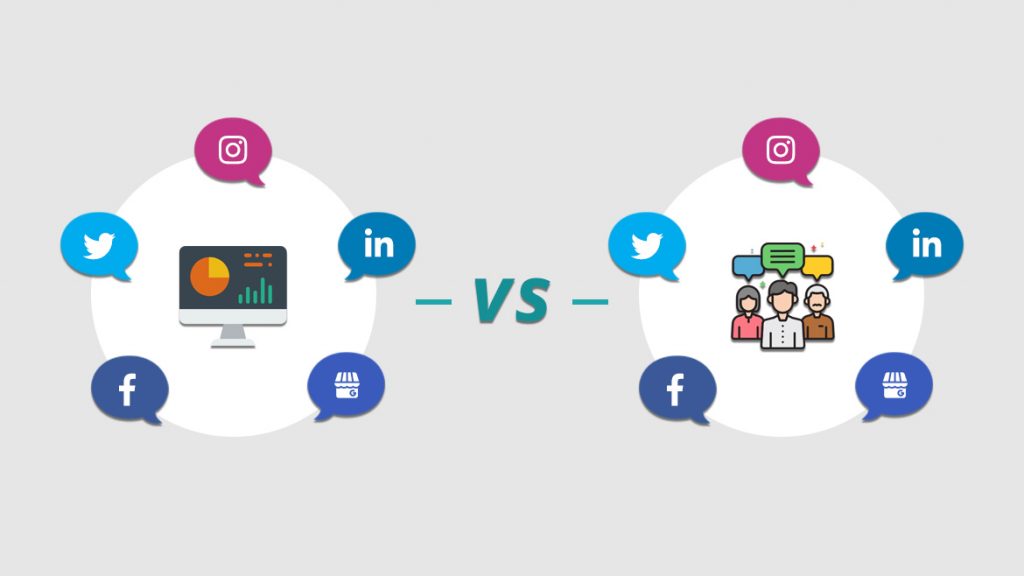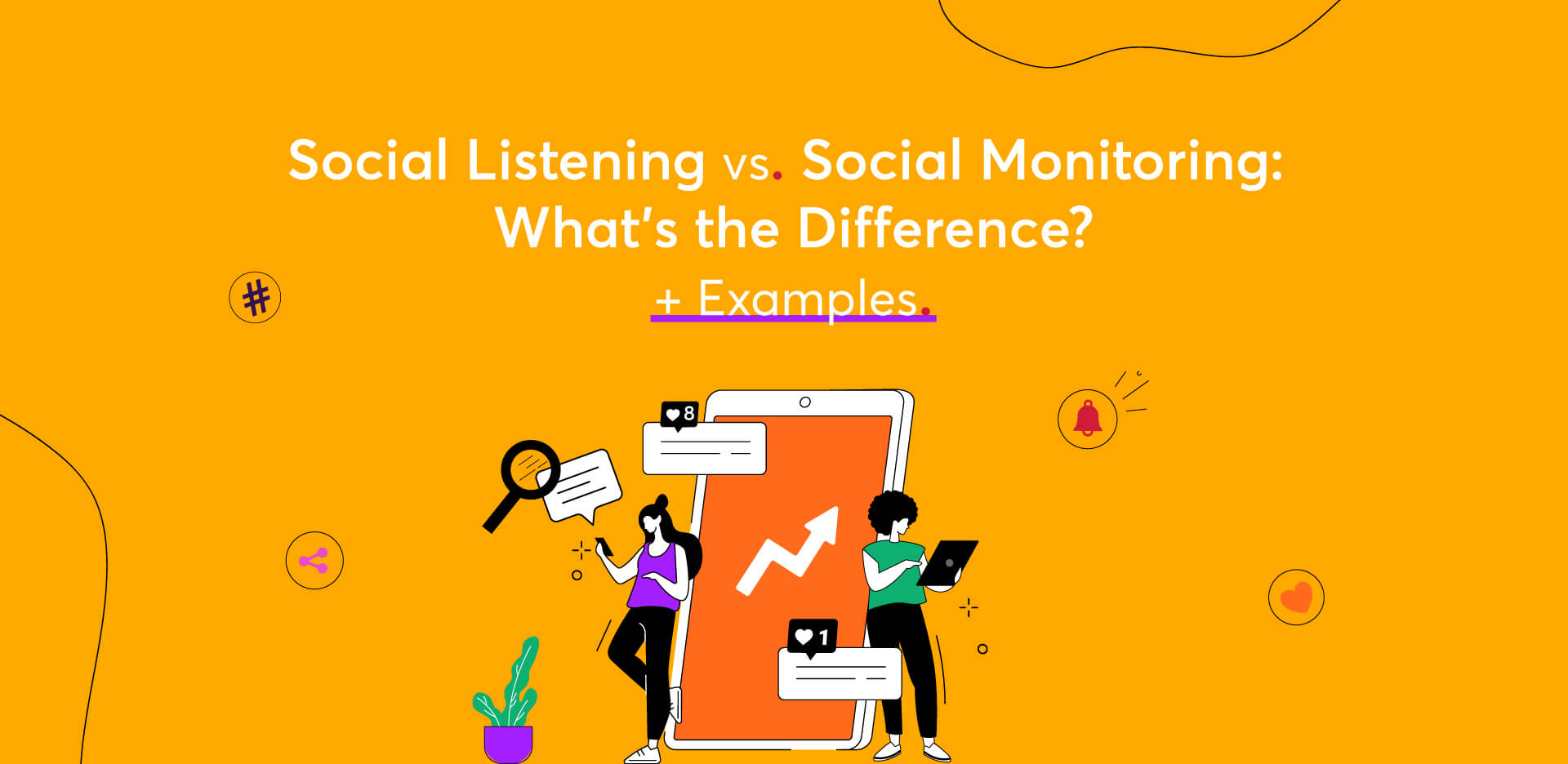In the digital age, where information travels at the speed of light, understanding social media dynamics is crucial for businesses and individuals alike. Social media has become a powerhouse for marketing, customer engagement, and brand management. Two terms that often come up in this context are social media listening vs monitoring. While they might sound similar, they serve different purposes, and understanding these nuances is key to harnessing the full potential of social media platforms.
Defining Social Media Listening Vs Monitoring

Social media listening and monitoring both involve tracking online conversations, but they have distinct focuses:
1. Social Media Listening: Understanding the Pulse
Social media listening is like tuning in to a radio station to understand the current vibe. It involves analyzing conversations, trends, and sentiments around specific keywords, topics, or industries. Listening helps you comprehend public opinions, emotions, and preferences regarding your brand or industry.
2. Social Media Monitoring: Tracking the Metrics
On the other hand, social media monitoring is akin to examining the technical aspects of the radio broadcast. It revolves around gathering quantitative data, such as engagement metrics, follower growth, click-through rates, and demographics. Monitoring provides you with concrete data about your social media performance.
Why Social Listening Matters
1. Understanding Customer Sentiments
Social media listening allows businesses to gauge how their audience feels about their products or services. By analyzing comments, reviews, and mentions, companies can identify customer pain points and address them proactively.
2. Improving Products and Services
By listening to social media conversations, businesses can gather valuable feedback that can be used to enhance their offerings. Whether it’s a feature request or a complaint, social media listening helps companies adapt to customer needs.
3. Crisis Management
In the event of a crisis or negative publicity, social media listening enables businesses to track the spread of misinformation and address concerns promptly. Quick responses can mitigate damage to a company’s reputation.
The Importance of Social Monitoring
1. Measuring Campaign Effectiveness
Social media monitoring provides quantifiable data that allows businesses to assess the performance of their marketing campaigns. Metrics like reach, engagement, and conversion rates help in evaluating the impact of social media efforts.
2. Identifying Market Trends
Monitoring social media platforms helps in identifying emerging trends and staying ahead of the competition. By analyzing what works for competitors and industry leaders, businesses can refine their strategies for better results.
3. Return on Investment (ROI) Analysis
Monitoring social media metrics provides the data needed to calculate ROI accurately. Businesses can determine which social media channels yield the highest returns and allocate resources effectively.
Conclusion
In the realm of social media listening vs monitoring are two sides of the same coin. While listening helps in understanding the emotions and perceptions of the audience, monitoring provides the numbers and statistics that drive informed decision-making. By striking the right balance between social media listening and monitoring, businesses can create impactful strategies that resonate with their audience and drive sustainable growth.
Are you ready to elevate your social media strategy? Request a demo from AIM Technologies today and discover how our advanced tools can empower your brand!
FAQs
Q1: Can social media listening and monitoring tools be used interchangeably?
- A1: No, while they both involve analyzing online conversations, social media listening focuses on understanding sentiments, while monitoring deals with quantitative metrics.
Q2: Are there any free tools available for social media listening vs monitoring?
- A2: Yes, there are several free and paid tools like Google Alerts, Hootsuite, and Mention that offer social media listening and monitoring services.
Q3: How often should businesses engage in social media listening vs monitoring?
- A3: Regularly. Consistent monitoring helps businesses stay updated with the latest trends and customer sentiments, enabling timely responses and strategic adjustments.
Q4: Can social media listening and monitoring help small businesses?
- A4: Absolutely. Social media listening and monitoring provide valuable insights regardless of the business size. Small businesses can gain a competitive edge by understanding their audience better.
Q5: What are some common mistakes to avoid in social media listening and monitoring?
- A5: One common mistake is ignoring negative feedback. Negative comments provide opportunities for improvement, and addressing them professionally can enhance a company’s reputation.


